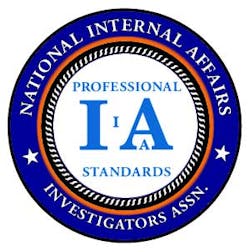Joseph Sangirardi was employed as a police officer for the Village of Stickney, Illinois from July 1988 until February 1999. Chief Zitek observed that Sangirardi had conduct problems that were affecting the operations of the Village of Stickney Police Department. Chief Zitek laid out the case in a letter to the Village of Stickney Board. The allegations stated that Sangirardi had difficulty dealing with juvenile calls, did not apply corrective advice from supervisors, exhibited poor judgment, and did not display a favorable impression when dealing with the public and violated policy and procedures in place to address conflict of interest, fairness, and impartiality.
The board reviewed the letter and attachments. They came to the conclusion that Sangirardi was in need of a psychological fitness for duty examination. Any disciplinary actions would be handed down following the completion of that evaluation.
Sangirardi was ordered to submit to the psychological fitness for duty examination, and although he arrived to the appointment on time, he refused to sign forms necessary to release the results to Chief Zitek. Sangirardi was ordered to report for a second examination. He participated in this second exam which was conducted by a certified psychologist, Dr. Glenn.
On September 23, 1998 after the examination, Sangirardi assisted the North Riverside Police Department without authorization from his superior officers. Chief Zitek wrote the board a letter asking that they review that incident and various reports and documents. The board reviewed the documents but took no action.
On October 10, 1998, Chief Zitek issued an order that delineated that the psychologist had issued his opinion but Sangirardi had not authorized release of the document. Chief Zitek ordered Sangirardi to release the report within 48 hours.
As of October 15th the report had not been received, and Chief Zitek filed formal disciplinary charges against Sangirardi for his refusal to release the document. As a result the board suspended Sangirardi without pay pending a hearing.
On October 15th Chief Zitek filed an additional charge. It was alleged that on March 17th Sangirardi had threatened a businessman, Mr. Cleary, in the community. Sangirardi was involved in a matter of litigation with Mr. Cleary.
In November 1998, an administrative hearing was commenced to determine the validity of the charges. The board decided that the charges that occurred in North Riverside, the slamming of a car door, and the juvenile complaint would not be addressed due to Chief Zitek's communications with the board. Sangirardi had the right to a hearing within 30 days of the filing which did not occur. The board decided to address the insubordination and the charge regarding the Mr. Cleary.
Prior to the hearing, the attorney for the board made the following statement that the board: "may not and should not consider any materials, information, communications, documents or otherwise which were received by it from any source whatsoever outside of the formal hearing process, and this Board must conduct its hearing and [reach its] decision based solely on the evidence that is presented and the testimony that is presented during the hearing which [the Board has] now scheduled." (JOSEPH SANGIRARDI, Plaintiff-Appellant, v. THE VILLAGE OF STICKNEY; JOHN ZITEK, as Chief of Police of the Village of Stickney; THE BOARD OF FIRE AND POLICE COMMISSIONERS OF THE VILLAGE OF STICKNEY; and EDWIN NOSKA, JAMES BERNARD and FRED SCHIMEL, as Members of the Board of Fire and Police Commissioners of the Village of Stickney, Defendants-Appellees.No. 1-02-1339, APPELLATE COURT OF ILLINOIS, FIRST DISTRICT, FIRST DIVISION,342 Ill. App. 3d 1; 793 N.E.2d 787; 2003 Ill. App. LEXIS 845; 276 Ill. Dec. 28)
During the hearing, witnesses regarding the threat were heard. Mr. Cleary, the alleged victim of the threat, testified that he received a phone call from Sangirardi and that: "Sangirardi threatened to use Cleary's face to play curb racquetball and that Cleary could be hit in the head with his own two-by-fours or run over by a bus." (. App. 3d 1; 793 N.E.2d 787)
Sangirardi and his wife testified that they were home asleep at the time of the phone call. He denied making a threat to Cleary.
Sangirardi admitted refusing to release the fitness for duty report. He acknowledged that he refused to obey the order to do so and that on October 12, 1998, he had officially refused.
Chief Zitek testified that he did not seek the results of the exam but only Dr. Gunn's recommendation as to Sangirardi's fitness for duty. Furthermore, he indicated that he had requested the document on several occasions.
The board concluded that Sangirardi was guilty of insubordination and of threatening Cleary. The charges were in violation of policy and procedure, and potentially, criminal charges could have been filed. On February 11, 1999, the board concluded that Sangirardi's employment should be terminated with the Village of Stickney.
Sangirardi appealed the decision and eventually filed suit on several counts. At issue in this article is the disclosure of the fitness for duty exam. Sangirardi contended that Chief Zitek's order to release the exam violated his right to confidentiality under the Mental Health and Developmental Disabilities Confidentiality Act (740 LLCS 110/1 et seq. West 1998). Also, the insubordination charge violated his right to due process under the Uniform Peace Officers' Disciplinary Act (50 ILCS 725/1 et seq. West 1998). The act allowed that an officer could not be disciplined for invoking a statutory or constitutional right.
The court disagreed with both stances. The Act exempted fitness for duty examinations. It "provided that any party to the proceeding or other interested person [***24] may request an in camera review of the record or communication to be disclosed. 740 ILCS 110/10(b) (West 1998). The Act did not specifically address the disclosure of fitness for duty exams."
However, Illinois statues were clear that Chief Zitek had the authority to order Sangirardi to submit to the examination. Police officers are in a unique category in that their psychological fitness for duty is of critical importance to the public health and safety. Chief Zitek had received statements from a detective, citizen, police officer, and a sergeant of misconduct on the part of Sangirardi. His order was reasonable and he was entitled to review the results. Furthermore, the board had the right to discharge Sangirardi.
This case stressed the importance of an officer's psychological fitness for duty. It also ruled that we as police officers are held to that higher standard of conduct. Fitness for duty examinations are an essential part of police operations. The actions by Chief Zitek and the Village of Stickney were lawful and in order.
Thanks to Dr. Heather McElroy for her assistance in this article.
Heather McElroy PHD.
Stone and Associates
4015 S. Cobb Drive, Ste. 265
Smyrna, GA 30082
770-431-6858 (office)
205-246-1452 (mobile)
www.occupational-psych.com
About the Author

Randy Rider
Randy Rider has been employed as a law enforcement officer for 32 years. He is still an active law enforcement officer serving in the capacity of training and internal affairs. Over the course of his career he has conducted hundreds of investigations concerning abuse, neglect, and use of force by police and corrections officers.
Lieutenant Rider was elected president of the National Internal Affairs Investigators Association in May of 2005. The association has a members employed in agencies throughout the United States and Canada. Lieutenant Rider is also a national instructor for the Public Agency Training Council, Indianapolis, Indiana.
